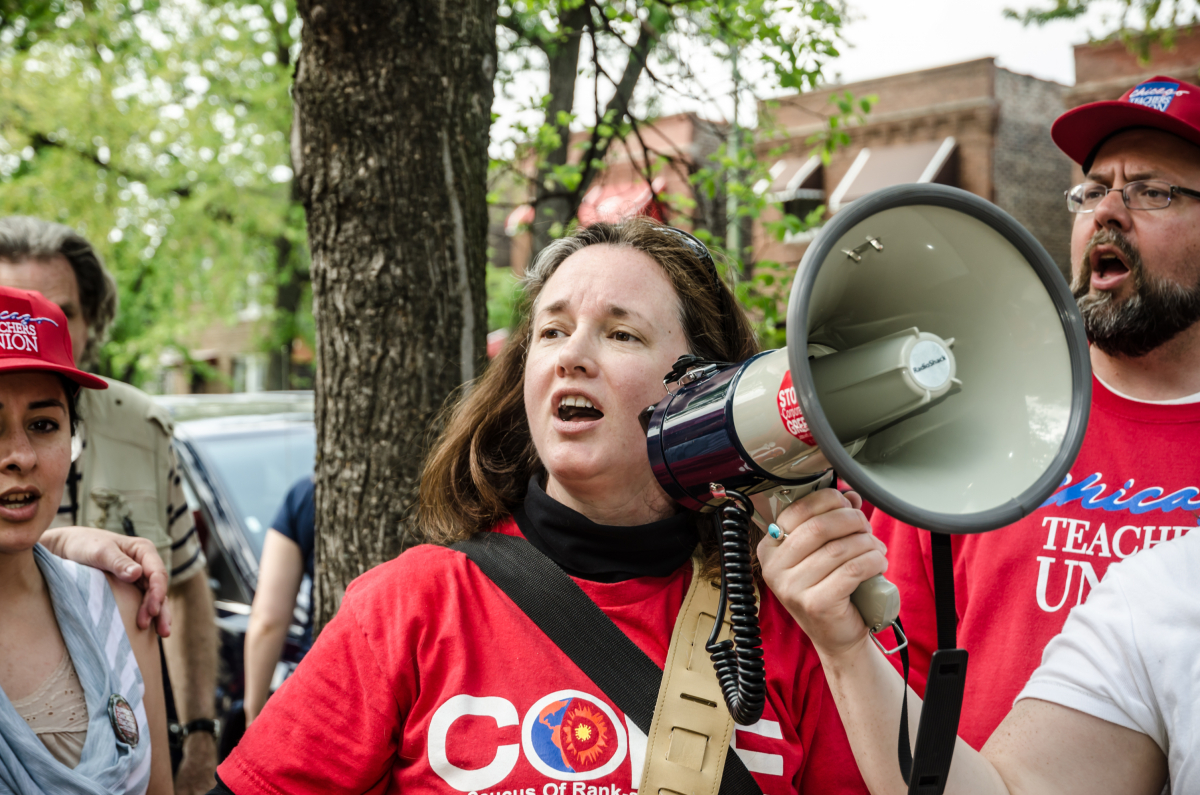Peals of laughter and song could be heard from the third floor classroom. We had pushed all the desks to one side, and were standing in a circle singing Play Party songs from Pete Seeger’s collection.
Just a month earlier I had come to teach at Goudy School, which U.S. Secretary of Education William Bennett had just called the worst school in the nation.
When I arrived my students were in the habit of hurting one another and throwing things at me when I turned my back to write on the chalkboard.
Now we were singing “Mazoo, mazoo” and taking turns around the circle. You were right, Brother Seeger: there is power in song.
My personal journey with the music of Pete Seeger, who died Monday at age 94, goes from childhood to classroom to the streets of Chicago.
As a child of the sixties, I formed callouses learning guitar playing “Where Have All the Flowers Gone?” and “Turn, Turn, Turn.” I don’t think there was any way I could have understood the immense truths in those songs—but they speak strongly to children anyway, like most of Seeger’s music.
Teaching children these songs became the backbone of my social-emotional curriculum for the students in my primary classrooms. It is a part of our cultural heritage that both heals and informs.
When I moved to a new Chicago school seven years ago, Nettelhorst Elementary, I was once again placed in a new culture and unknown climate. That very first day I taught my students “Train Is a Comin’” from Seeger’s collection of children’s songs. My co-teacher Stacy Holzwarth remembers hearing the children’s voices floating into her room next door.
“I am so thankful that I first heard your music in the hallway,” Holzwarth says, “because it’s led both me and my students into a life of learning music and history together—and most all, listening to each other.”
Movement Music
These folk songs that had been the heart of childhood, and then of my teaching career, soon became my connection to the labor movement.
Seeger himself put it best, in his interview with Democracy Now. Folk songs “help us understand where we are, what we’ve got to do.”
“I grew up with the music of Pete Seeger the same way I grew up with the legacy of Martin Luther King,” said Nate Goldbaum, co-chair of the Caucus of Rank and File Educators. “They were essential components of our culture—but the depth of the challenge they posed to the established systems of injustice were hidden from me until I, myself, became involved in the freedom struggle.
“Then I was able to turn to them anew, and their words and spirit fueled a deeper passion that cemented my commitment to the movement, and gave me a broader sense of my place in its long and complex history.”
In the education justice movement in Chicago, the work of Pete Seeger propels us forward. And we have had plenty of opportunities to sing.
During a sit-in outside Mayor Rahm Emanuel’s office, asking for a meeting to discuss school closings, activists encircled the people willing to be arrested. Spontaneously we began singing “We Shall Not Be Moved,” one by one adding our voices in solidarity. This music supports and emboldens us.
“Ain’t Gonna Let Nobody Turn Me Around” was a song we chanted in the streets throughout the West Side of Chicago last May, during our three-day march against school closings. Bilingual educator Craig Cleve walked by my side the whole way, singing out loudly and clearly in his tenor voice.
“Decades may pass, issues may change, methods of protest may vary, but the music of Pete Seeger is the bass note that spans the generations, continues to inspire, and binds us all,” says Cleve. When we recall these songs from our childhood, teach them to others, and bring them to the streets in our struggles, we are celebrating and recognizing the work of those who went before us.
“Realize that little things lead to bigger things,” Pete Seeger said.
Michelle Gunderson teaches in the Chicago Public Schools.


